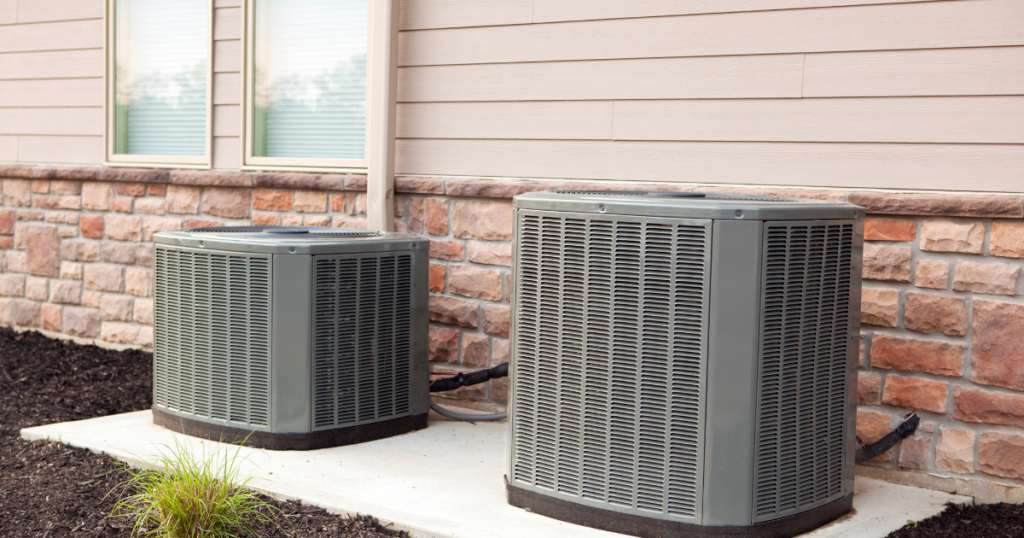Upgrading to a modern HVAC system boosts energy efficiency, lowers emissions, and improves indoor air quality. With smart technology and eco-friendly refrigerants, it’s a sustainable choice for a healthier home or business.
Heating, ventilation, and air conditioning (HVAC) systems are essential for indoor comfort. However, traditional systems are often energy-intensive and contribute to environmental harm. Upgrading to a modern HVAC system is a step towards energy efficiency, better air quality, and sustainability.
Improved Energy Efficiency
Modern HVAC systems are built with advanced technologies that minimize energy waste. These include:
- Variable-speed motors that adjust output based on need.
- Smart thermostats that optimize temperature settings.
- Sealed ducts to prevent air leaks.
Switching to an energy-efficient system can reduce your energy bills by up to 30%. It also decreases dependency on fossil fuels, cutting carbon emissions significantly. By choosing an energy-efficient upgrade, you’re contributing to a greener planet while saving on utility costs.
Check out our AC installation services for energy-efficient solutions.
Reduced Greenhouse Gas Emissions
Older systems often rely on gas or oil, both of which produce high carbon emissions. Upgraded systems address this with:
- Eco-friendly refrigerants that don’t harm the ozone layer.
- Compatibility with renewable energy sources like solar or wind.
Studies show that upgrading to modern systems can reduce emissions by 38%-53% over a system’s lifetime. This not only aligns with climate goals but also reduces your carbon footprint.
Visit our page on energy-efficient heating systems.
Enhanced Indoor Air Quality
Indoor air can be up to 5x more polluted than outdoor air. Upgrading your HVAC system helps by:
- Incorporating HEPA filters to trap allergens and dust.
- Adding humidity controls to prevent mold growth.
- Ensuring proper ventilation to dilute indoor pollutants.
These features improve respiratory health and enhance overall comfort. Improved air quality is especially crucial for homes with children, pets, or individuals with allergies.
Regular AC maintenance can keep your system running efficiently and improve air quality.
Conservation of Natural Resources
Modern HVAC systems are designed to use resources wisely. They:
- Integrate with renewable energy sources like geothermal heat pumps.
- Use advanced insulation to prevent energy loss.
- Optimize energy use with programmable settings.
By reducing reliance on non-renewable resources, these systems support sustainability. This is especially important as global energy demands continue to rise.
Learn how heating installation can make your home more resource-efficient.
Quieter Operation
Older HVAC systems can be noisy, creating unnecessary distractions. Modern units address this issue with:
- Advanced insulation to dampen vibrations.
- Variable-speed technology for quieter operation.
Reduced noise not only enhances indoor comfort but also benefits local wildlife by minimizing noise pollution in surrounding environments.
Check out our heating repair services to keep your system running quietly.
Longevity and Reliability
Upgraded HVAC systems are designed to last longer with less maintenance. They:
- Feature durable components that reduce wear and tear.
- Include smart diagnostics to alert you about potential issues.
This reliability saves money on repairs and ensures your home stays comfortable year-round. Investing in a modern system today means fewer headaches tomorrow.
Extend System Life: Learn about the benefits of HVAC maintenance.
Support for Water Conservation
Many modern HVAC systems are designed to use water efficiently. Features like condensate recovery systems help capture water that can be repurposed for landscaping or cooling needs. This is especially beneficial in regions where water conservation is critical.
Water-efficient HVAC systems reduce waste and promote sustainability, making them a smart choice for environmentally conscious homeowners.
Explore our commercial plumbing solutions for eco-friendly upgrades.
Why Retrofitting Makes Sense
If replacing your entire system isn’t an option, retrofitting can help. This involves upgrading parts of your existing system, such as:
- Adding smart thermostats for better energy control.
- Installing heat recovery systems to reuse energy.
Retrofitting is cost-effective and significantly improves the efficiency and sustainability of older systems.
Read about retrofitting options on our heating maintenance page.
Call to Action
Ready to Upgrade Your HVAC System?
Take the first step towards a more sustainable and efficient home or business. Upgrading your HVAC system is not just an investment in comfort—it’s a commitment to protecting the environment.
Call Us Today: TEL: [Insert Phone Number] to schedule a consultation. Our experts will guide you in choosing the perfect energy-efficient solution.
Explore More:

